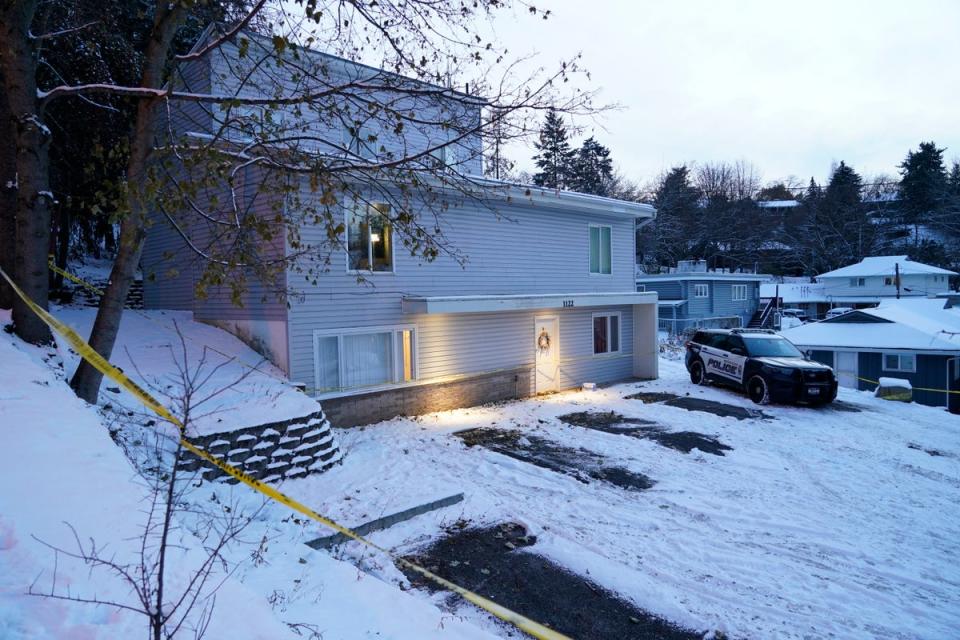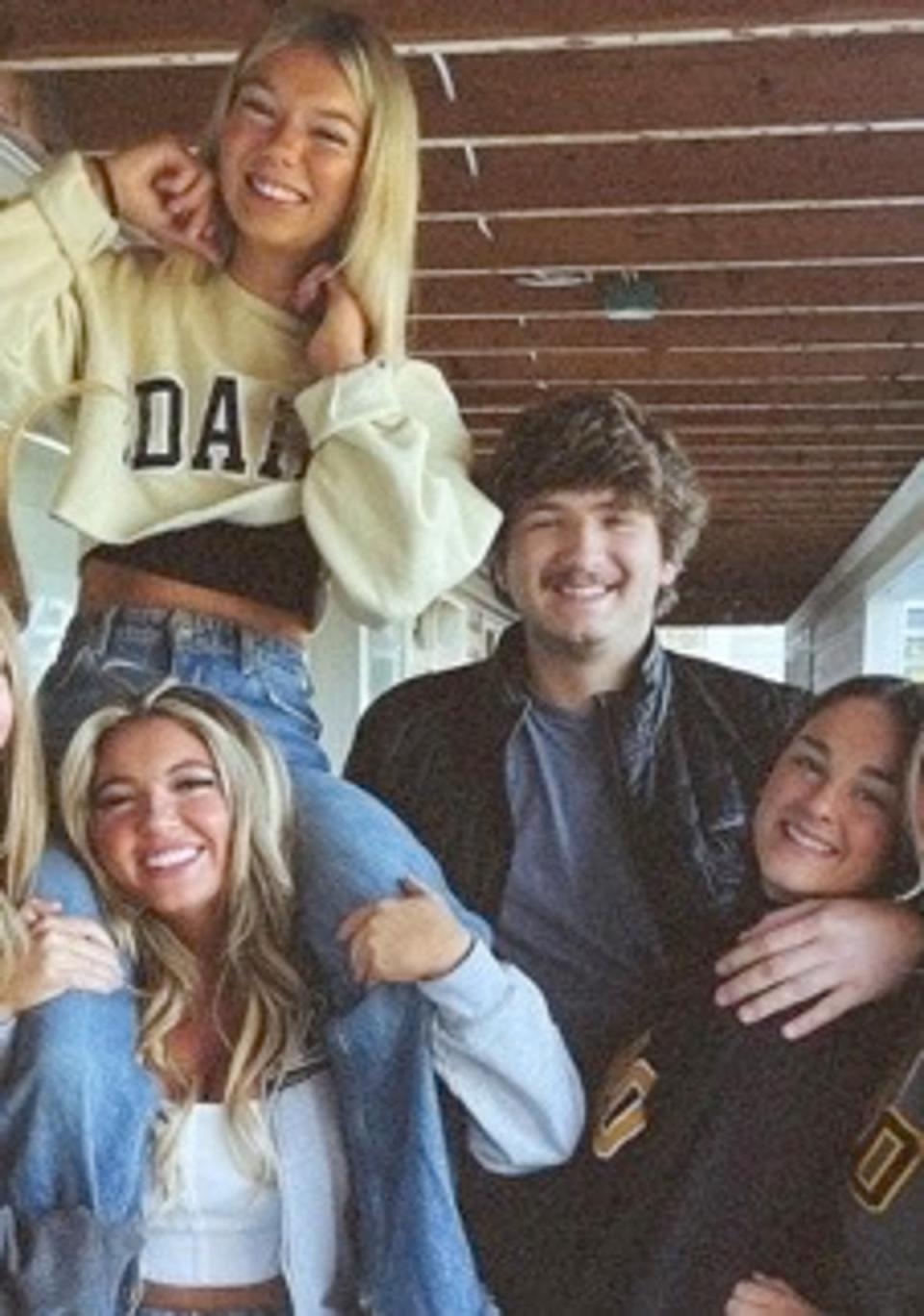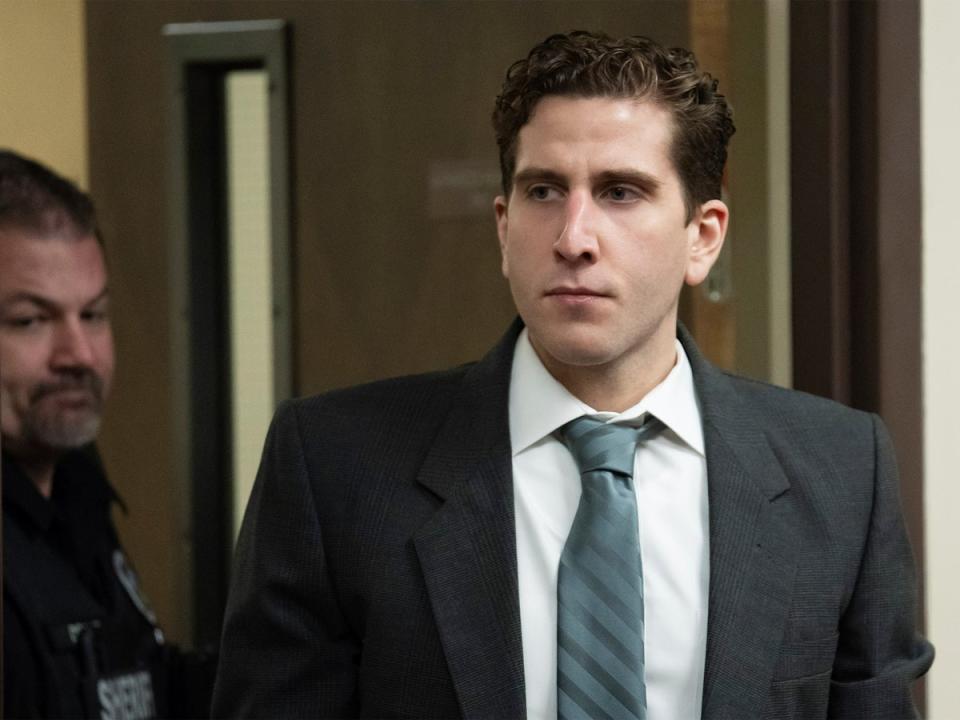Idaho murder victim Kaylee Goncalves’ parents reveal new details about how her body was found
Kaylee Goncalves, one of the four victims in the University of Idaho student murders, was found upright, slumped against the wall, her parents recently revealed.
The 21-year-old was brutally stabbed to death in an off-campus home in Moscow, Idaho, on 13 November 2022, along with Madison Mogen, Xana Kernodle and Ethan Chapin. A trial date is still unknown for their suspected killer.
Steve and Kristi Goncalves, Kaylee’s parents, sat down for an interview with ABC News this week, where they revealed they had received thousands of photos of the scene of the grisly crime from police.
Some of the images revealed the final position of Kaylee’s body when she died.
“The side where Kaylee was, was up against the wall. And if you can imagine, Kaylee in an upright sort of position – up in the corner – slumped. I mean she was trapped,” Ms Goncalves told ABC News.
“The bed was the entire room. You could barely open up the door without swiping the foot of the bed - and it was wall. The headboard was up against the wall.”

Goncalves and Mogen’s bodies were found in the bedroom on the third floor, while Kernodle and Chapin were found on the second floor of the home, The Independent previously reported.
Bryan Kohberger is accused of breaking into the off-campus student home on King Road and stabbing to death the four students with a large, military-style knife.
Prosecutors say Kohberger’s DNA was found on a knife sheath that was discovered on Mogen’s bed next to her body.
The Goncalves said in the interview this week that they were also given some of Kaylee’s belongings from the house, including a trash can from her room that was full and appeared untouched, her mother recalled.
“We opened it [and] there was a little squeezy applesauce thing that, like you would give to a toddler. It did not appear to have been gone through,” Ms Goncalves said.
Police said they had gathered more than 100 pieces of physical evidence from the scene, along with some 4,000 photos and 3D scans of the residence.
The Goncalves, who have long questioned the competency of the investigation, publicly stated last month that they were against the demolition of the three-story house where the murders took place. But on 28 December, despite several protests, the home was razed to the ground.
Meanwhile, the family said they are still waiting on a full digital copy of Kaylee’s phone from police.
"We’re just left in limbo,” Kaylee’s dad, Steve Goncalves said. “These are the last moments of your child’s life and you’re sitting here fighting with somebody who just doesn’t care.”
The Goncalves, along with the other victims’ families, have eagerly been waiting for a trial date to be set for Kohberger. But getting that answer was put on hold again.

On Friday, the 29-year-old criminology PhD student and accused mass killer appeared in a Latah County courtroom where his legal team made another bid to have his indictment dismissed and to unseal documents in the case, which Judge John Judge denied.
The judge was also expected to set a trial date with prosecutors arguing for summer 2024 due to concerns of more school traffic in the fall and the spring.
“I am still concerned about the victims and their families,” prosecutor Bill Thompson said. “They have suffered for well over a year now with a lot of uncertainty. And that’s painful, and it’s an everyday reminder, and they need some certainty and they need some closure in a timely fashion.”
“But we know we also have to make sure, as Your Honor just said a few minutes ago, that we only do this case once,” he added.
Kohberger’s defence team argued that a more appropriate date would be summer of 2025, claiming that there was a mountain of evidence including thousands of photographs, videos, and over 400 witnesses to interview.
Ultimately, Judge Judge decided to hold off on setting a date.
“My heart goes out to the victims. I can’t even imagine the pain, the grief... because you can’t really go forward with your life with this hanging over your head, so, I’m sorry,” he said.

The demolition of the house in December marked an emotional step for the victims’ families and a close-knit community that were devastated by the brutal slayings of the students.
For more than six weeks, the college town of Moscow was plunged into fear as the accused killer remained at large with no arrests made and no suspects named.
Then, on 30 December, law enforcement suddenly swooped in on Kohberger’s family home in Albrightsville, Pennsylvania and arrested him for the quadruple murders.
The motive remains unknown and it is still unclear what connection the WSU PhD student had to the University of Idaho students – if any – prior to the murders. The murder weapon – a fixed-blade knife – has never been found.
Kohberger, who is facing the death penalty for the killings, has tried once already to get the charges thrown out.
That bid was rejected by the judge.

A criminal justice PhD student at WSU, Kohberger lived just 15 minutes from the victims over the Idaho-Washington border in Pullman.
He had moved there from Pennsylvania and began his studies there that summer, having just completed his first semester before his arrest.
Before this, he studied criminology at DeSales University under renowned forensic psychologist Katherine Ramsland who interviewed the BTK serial killer and co-wrote the book Confession of a Serial Killer: The Untold Story of Dennis Rader, the BTK Killer with him.
He also carried out a research project “to understand how emotions and psychological traits influence decision-making when committing a crime”.


